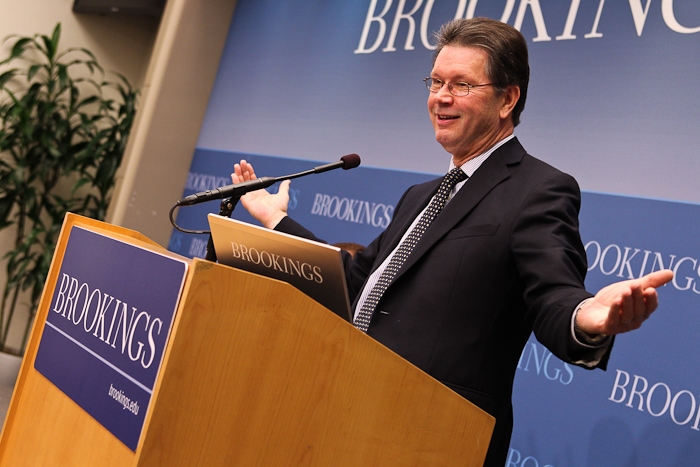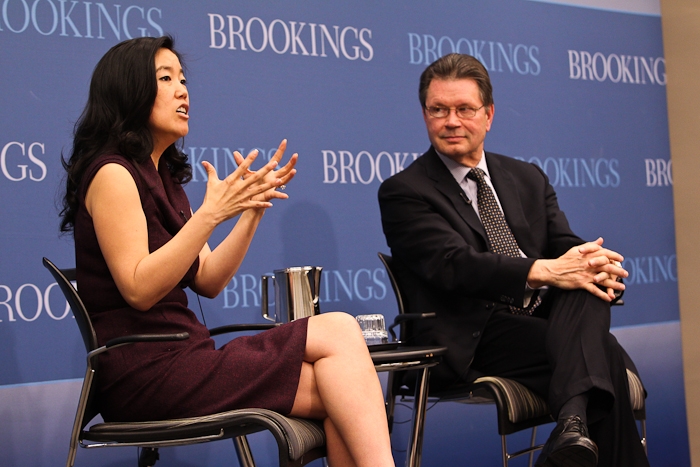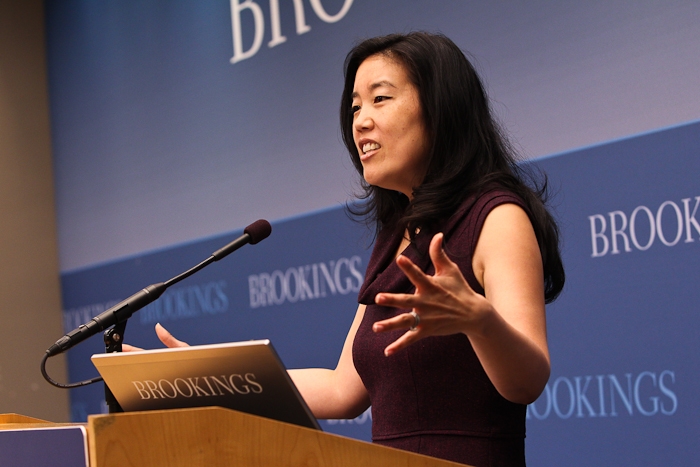2026
Many popular education reforms focus on improving school districts whereas others, such as charter schools, are premised on school districts being the problem rather than the solution.
On March 27, Russ Whitehurst and Matthew Chingos from the Brown Center on Education Policy at Brookings presented findings from their new study examining the importance of school districts to student achievement. The study found that district effects on student achievement are smaller than the effects of schools and teachers but still large enough to be of practical and policy significance. For example, students in a district that is at the 70th percentile in district effectiveness will be more than 9 weeks ahead of similar students in a district at the 30th percentile of effectiveness on math and reading scores.
After Russ Whitehurst and Matthew Chingos presented their findings Michelle Rhee of Students First took to the podium to share anecdotes of her time as Chancellor of D.C.’s school district from 2007 to 2010.
Rhee and Whitehurst then went on to discuss her experiences as DCPS Chancellor, tackling questions about the role charter schools play in education reform, and what impacts poverty can have on student achievement. Rhee also reflected on how she would tackle her role as Chancellor differently if she were to do it again.
How important are school districts? … School districts occupy a really central place in the American educational system. They manage nearly all of the $500 billion a year of public funds…they are the recipients of federal funds, they are the recipients of state funds. If you follow the money, you’d certainly think that districts were terrifically important. – Grover “Russ” Whitehurst

Students in the best districts in North Carolina by the end of 4th and 5th grades have learned a whole year’s worth more than students in the worst performing districts. – Matthew Chingos

The problem is not the kids. The problem is not the teachers. The problem is that the kids and teachers and principals are forced to operate in this incredibly antiquated bureaucracy that is driven by these rules that make absolutely no sense – Michelle Rhee

If you look at social mobility rates in this country, they are actually near the bottom internationally, which means that if you are a child born into poverty in this country, the likelihood that you will ever escape poverty is not good. That to me goes against every ideal we have as a country. That is so un-American.” – Michelle Rhee

How Important Are School Districts?
Agenda
-
March 27
-
Speakers
MRMichelle Rhee Founder and CEO - Students First -
Introduction and Moderator
-


